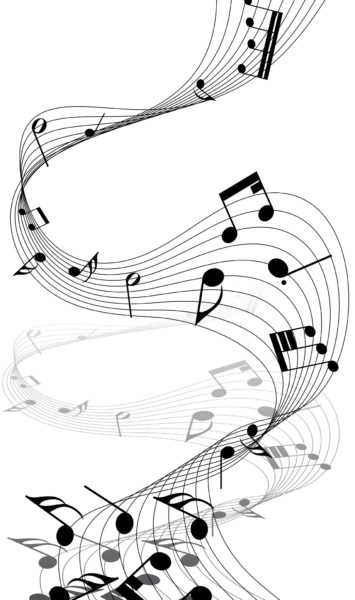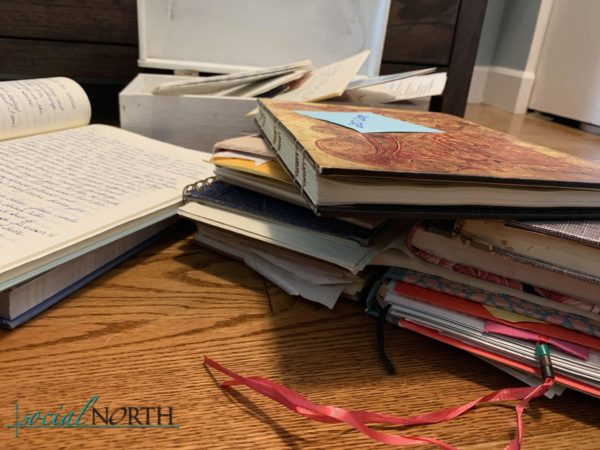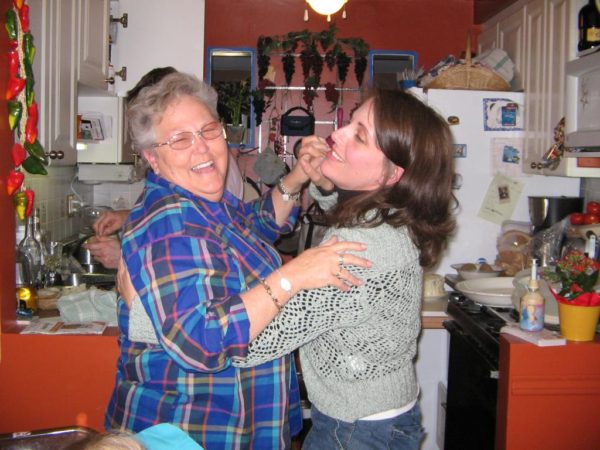Finding meaning – and maybe hope – by simply writing…
 In the past few weeks, my social feeds have started to resemble the internet choirs popping up. The same song being sung and recorded on cell phones around the world, synced up yet slightly offbeat from one another. Surprisingly lovely. In our Facebook and Insta updates, our words may be different but the sentiment is the same – help me through this, help me find meaning, community, connection while I’m so very much alone. Not surprisingly, our words and videos and images are beginning to merge and blend into a beautiful symphony of living history.
In the past few weeks, my social feeds have started to resemble the internet choirs popping up. The same song being sung and recorded on cell phones around the world, synced up yet slightly offbeat from one another. Surprisingly lovely. In our Facebook and Insta updates, our words may be different but the sentiment is the same – help me through this, help me find meaning, community, connection while I’m so very much alone. Not surprisingly, our words and videos and images are beginning to merge and blend into a beautiful symphony of living history.
Social media provides an immediate emotional outlet and connection. Reaching out to each other helps us process and understand our struggles and terror and grief. So much lost in such a short time…
But will we leave it up to history to judge our journey through this pandemic – based solely on our Facebook updates? Are you looking for a different way to tell your story – maybe not to the world but for yourself to look back on years from now?
Unlocking your inner creative writer during a crisis
When I began teaching creative writing at my local community college, the age of “telling it all” was still embryonic. Books like the “Chicken Soup for the Soul” series allowed us a window into regular people’s hardships and struggles. On TV, Oprah, Sally Jessy Raphel, Phil Donahue and, of course, Geraldo and his famous talk-show-nose-punching episode brought the raw, gritty stories to life. Mesmerized – addicted – we watched families crumble and dissolve during the “healing” process.
My students were a by-product of the dawning of the “tell all” time we’re in now. Ministers, business men and women, garbage truck drivers, stay home moms, painfully reclusive introverts, gym addicts – their only common defining characteristic a craving to document their lives. Some aspired to write books while others simply wanted to learn to write better. They were exhilarated about the idea of writing the stories of their lives but few were prepared for the first step – an intense emotional excavating.
Writing at the best of times is messy, emotional work. Writing the hard truths during hard times feels like opening a vein and bleeding all over the keyboard. But make no mistake, the first step to writing a good story is peeling away the protective coating around our vulnerability. Without exposing our beautiful, fragile inner-self, our writing is shallow and trite and about as satisfying as eating a take-out burger that’s been sitting under the heat lamps an hour too long. Bland and boring to the core, even if somewhat filling.
Imagine you’re a student in my writing class, first night is in session
 You enter the room and see me, sitting on the desk facing the room – I’m not your traditional teacher type. I smile and you nod, routing yourself to the back of the room, where you can watch the group from a safe distance. But before you can get past the first row, I stand and call out to you, inviting you take a seat in the front two rows.
You enter the room and see me, sitting on the desk facing the room – I’m not your traditional teacher type. I smile and you nod, routing yourself to the back of the room, where you can watch the group from a safe distance. But before you can get past the first row, I stand and call out to you, inviting you take a seat in the front two rows.
Once everyone arrives – and the front rows are filled with people sitting side by side – the class begins. As I tell you about my life and my writer’s journey, you begin to relax. Everyone introduces themselves and the strangers start to feel less strange. As the first hour wears on, you begin to feel a sense of safety here, camaraderie, surrounded by others who want to be writers. Sounds a little bit like your social media experience, doesn’t it? Getting to know each other, the need and joy of sharing.
And that’s when I introduce the first exercise.
The writing exercise that might make you regret ever wanting to be a writer
Every person in the class is given 16 squares, divided into 4 color coded groups. Each of the colors represents one of the following:
- People I love
- Things I like to do
- Physical qualities of mine that I’m proud of
- Personality attributes of mine that I’m proud of
Everyone is asked to write something on the back of each square. It can be one thing or a group of things. For example, you have four squares for the people you love so your spouse might be one, your parents another, your siblings another and your best friend the last. Or you might group your whole family on one square, leaving the rest for friends. Maybe one square is for your dog or your cat. And just like what you share on Facebook is your choice, how you organize your squares is your choice.
When everyone is ready, the squares are turned face down and I ask you to imagine you’re at the doctor’s office and I’m your doctor. I’ve just sat down across from you and I’m explaining the results of your tests. You know immediately the news isn’t good and you wish you’d brought someone with you to hold your hand. It seems you have a terminal illness and there’s no cure, no hope. It’s best to get your affairs in order, I advise, ensure that your life is organized to make it easier for loved ones when you can’t manage on your own. Without any more preamble I ask you remove two squares from your pile. They can be from any category and you can look at what’s on the square before you remove it.
As we move through the exercise, the removal of some of the squares remain in your control but sometimes a neighbor will remove a square. Sometimes you’ll be asked to remove a square from a specific category without reading what’s on it – sometimes your neighbor will take one blind as well. There will be interludes of euphoric remission followed periods of inability to do anything for yourself as we slowly work our way to the final two squares left before you.
And, of course, your last moments.
Early in the exercise people begin negotiating with themselves. Priorities shift as squares are lost. And just like the current COVID-19 crisis, I begin to hear things like, “that’s okay, as long as I still have this thing.” And when that thing is taken from them the negotiations begin anew.
For some people, the tears arrive early in the exercise while others rub their neighbor’s shoulder, counseling their own grief while comforting another. And it’s here, in these early moments of grief, when barriers begin to fall away, that the story telling begins. And it’s these stories that make the exercise transformative. While each story is unique and beautiful as the person telling it, the messages are often the same.
What we’re experiencing now, COVD-19 or Coronavirus or whatever name you give the pandemic, it’s the same fear and grief and uncertainty as my students experience when we begin writing together. It’s a massive experiment in collective vulnerability.
And it’s the first step to writing your own truths. The stories you’ve kept hidden and protected from the world aren’t all that different than your neighbor’s. Like the online choirs, people all singing the same songs into their cell phones at the same time, maybe your narrative can help make the song better, richer.
Getting to your gold when you can’t attend a writing class
If you’re considering writing your stories during this crisis, the best thing to do is to simply start writing. It’s not going to be easy but it’s later than you think. It’s time to begin now. Go old school with a pen and a journal or open up a word document on your computer and just start writing. I have a document on my computer that’s called “Shitty First Drafts and it’s where I begin all my writing. 
My COVID-19 journey began with a business trip to North Carolina. Two weeks home – and now symptom free – my truths (like yours) are a strangled mess of hope and fear and grief. My mother is isolated in a rehab facility, with a broken foot and lung infection, battling anxiety and fear as she struggles to stay connected on her iPad – with only one working hand. Like you, I feel lost and alone and spend far too much time trying to tamp down the terror – of my own family and our larger world. Writing about it doesn’t solve any of the problems but it helps me feel a little less lost, a little less alone.
If you need a few more pointers to get you started writing, these posts might help:
I’m looking forward to reading your stories.


Latest comments